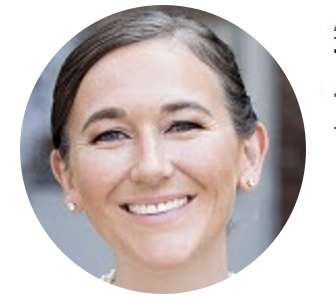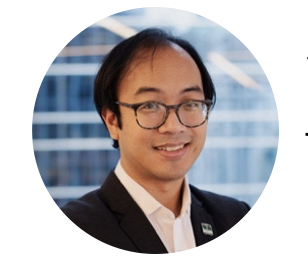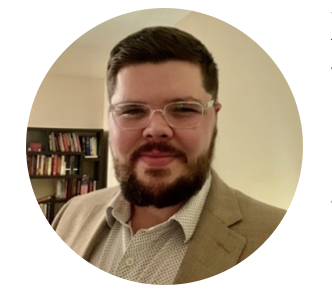This summer, we challenged you to submit ideas for policies, innovations, and best practices that the nation should implement as we move from crisis to recovery and, ultimately, toward Eno’s vision of a transportation system that fosters economic vitality, advances social equity, and improves the quality of life for all.
Over 100 people rose to the challenge and submitted articles for Eno’s inaugural Martin Wachs Memorial Essay Contest. Our judging panels carefully considered each essay in one of two categories—professional and student—and selected the slate of winners we are proud to present to you today. The full essays will be published as an anthology in early 2022, but keep reading for a sneak peek.
Professional Essay Contest Winners:
 First Place: Racial Equity in Traffic Enforcement by Andrea Hamre
First Place: Racial Equity in Traffic Enforcement by Andrea Hamre
Andrea Hamre is a Research Associate in the Mobility and Public Transportation Program at Montana State University’s Western Transportation Institute. Her essay makes the case for the power and potential of the Section 1906 Grant Program to Prohibit Racial Profiling.
 Second Place: A Mobility Guarantee for Rural America by Steven Higashide
Second Place: A Mobility Guarantee for Rural America by Steven Higashide
Steven Higashide is Director of Research for TransitCenter, a New-York-based foundation that works to make cities more sustainable and just through better public transit. His essay proposes a three-pronged solution to provide better mobility for rural communities: a federal “mobility guarantee,” state support for rural transit through an Office of Local Transit Support, and sufficient and flexible federal funding.
 Third Place: Sidewalks are Public Transportation by Jonathan Howard
Third Place: Sidewalks are Public Transportation by Jonathan Howard
Jonathan Howard serves as a Program Manager in the Federal Transit Administration’s New York regional office. His essay focuses on pedestrian safety and uses real-world examples from NYC to illustrate the ways agencies can build and improve sidewalks, if public transit agencies and municipalities can break down institutional silos and work together.
Honorable Mention: Are You Going Virtual with Public Engagement? Consider These Three Principles First by Amy Johnson
Amy Johnson is a senior transportation planner for the North Central Texas Council of Governments and the coordinator for the Dallas-Fort Worth Metropolitan Transportation Plan. Her essay outlines three key principles to help reimagine public engagement strategy to improve the value created for both the public and her organization.
Honorable Mention: Hire People Who Can’t Drive: We are Expert on the Transportation System of the Future by Anna Zivarts
Anna Zivarts is a low-vision mom and nondriver and leads the Disability Mobility Initiative at Disability Rights Washington. Her essay argues that actively recruiting nondrivers for transit agency and leadership positions is key to improve system accessibility, recognizing that there is no more important credential than lived experience.
Student Essay Contest Winners:
 First Place: A New Bus Priority by Xavier Harmony
First Place: A New Bus Priority by Xavier Harmony
Xavier is a PhD student at Virginia Tech whose research focuses on the politics of public transportation. His essay suggests that as we come out of the pandemic and rebuild our transit systems, it’s time we recognize the importance of the bus to essential transit riders and finally prioritize the bus.
 Second Place: Were COVID Pedestrian Streets Good for Business? Interviews Reveal Pandemic Prosperity by Hayden Anderson
Second Place: Were COVID Pedestrian Streets Good for Business? Interviews Reveal Pandemic Prosperity by Hayden Anderson
After completing his undergraduate at Brigham Young University, Hayden Anderson is currently in graduate school at UC Davis, focusing on sustainable transportation by reducing car dependence. His essay reviews original research on a total of 108 fully car-free pedestrian streets that were implemented in the United States during the pandemic.
 Third Place: Runway to Recovery During COVID-19: Aviation Accessibility Though An Equity Lens by Shriya Karam
Third Place: Runway to Recovery During COVID-19: Aviation Accessibility Though An Equity Lens by Shriya Karam
Shriya is a third-year undergraduate student at the University of Pennsylvania studying Systems Engineering, with an intended concentration in Decision Science. Her essay discusses how to leverage the transition from the pandemic to spur the development of aviation systems under a paradigm of accessibility from the perspective of an individual traveler.
Honorable Mention: Grappling with History – Improved Awareness of Structural Inequality and Health Outcomes in the Transportation Sector by Katherine Turner
Katherine Turner is a first-year master’s student in the Transportation Technology and Policy program at UC Davis. Her essay proposes codifying equity-based planning metrics for future transportation plans and prioritizing assessment of historically disadvantaged groups with respect to nearby transportation infrastructure.
Honorable Mention: Roll Out the Red Carpet for Transit by Simon Tan
Simon Tan is on a journey to start a second career as an urban planner and is currently pursuing a Masters in Urban Planning. His essay proposes that leaders aggressively invest in building dedicated transit-only lanes that can be implemented relatively quickly and cheaply to supercharge transit as a viable alternative to driving and promote an equitable pandemic recovery.
Honorable Mention: How Pedestrian! Re-Imagining the Mobility Planning Process by Manu Agni
Manu Agni is studying Urban Planning at UC San Diego, where he also serves as Student Body President. His essay makes the case for “tactical urbanism,” which is the strategy of deploying community-originated, cheap, temporary changes to the built environment, and community design.
Congratulations to all our winners! Stay tuned for the full essays and more from our winning Centennial Scholars. Thank you to everyone who submitted an essay and participated in the contest. Marty would be so proud of all the great ideas and information you put forth and we are so grateful that you shared it with us.

 First Place: Racial Equity in Traffic Enforcement by Andrea Hamre
First Place: Racial Equity in Traffic Enforcement by Andrea Hamre Second Place: A Mobility Guarantee for Rural America by Steven Higashide
Second Place: A Mobility Guarantee for Rural America by Steven Higashide Third Place: Sidewalks are Public Transportation by Jonathan Howard
Third Place: Sidewalks are Public Transportation by Jonathan Howard First Place: A New Bus Priority by Xavier Harmony
First Place: A New Bus Priority by Xavier Harmony Second Place: Were COVID Pedestrian Streets Good for Business? Interviews Reveal Pandemic Prosperity by Hayden Anderson
Second Place: Were COVID Pedestrian Streets Good for Business? Interviews Reveal Pandemic Prosperity by Hayden Anderson Third Place: Runway to Recovery During COVID-19: Aviation Accessibility Though An Equity Lens by Shriya Karam
Third Place: Runway to Recovery During COVID-19: Aviation Accessibility Though An Equity Lens by Shriya Karam

